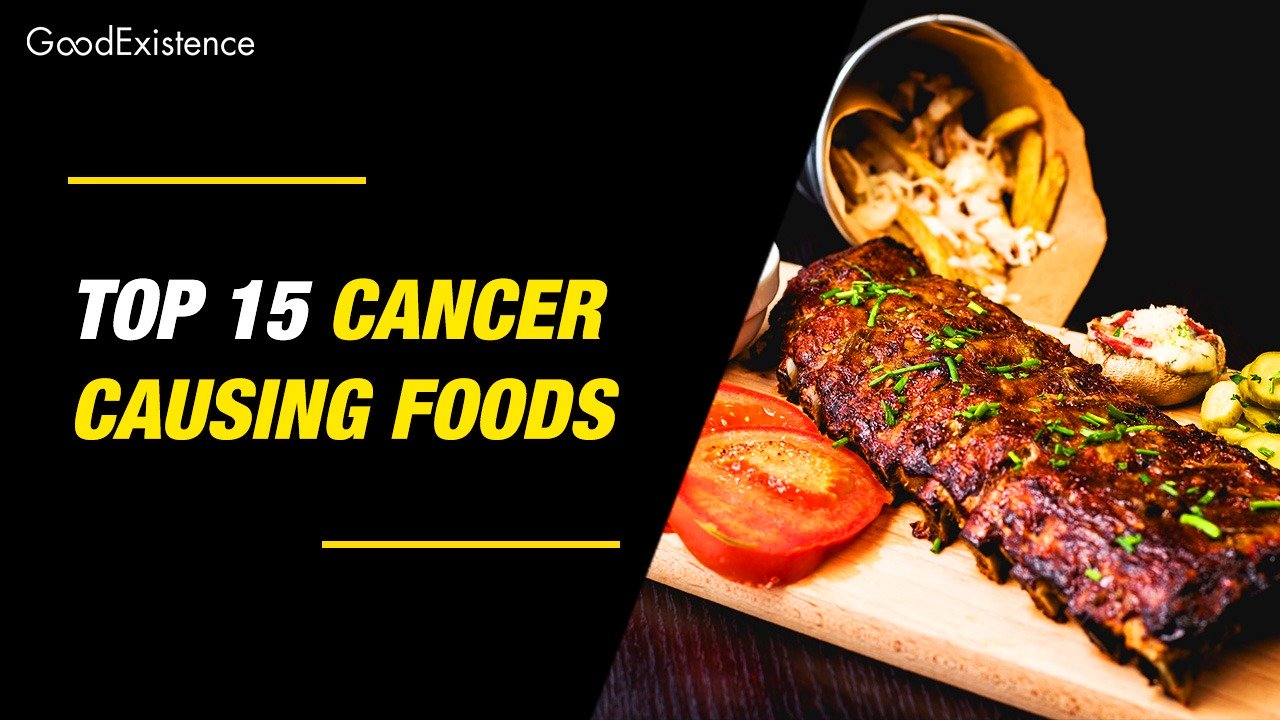
In today’s world, the term “cancer foods” is becoming increasingly familiar. These are foods that, when consumed frequently or in large amounts, may increase the risk of various cancers.
While genetics and other environmental factors play a significant role in cancer development, our dietary habits can also contribute to this risk.
With the plethora of information available, it can be overwhelming to determine which foods should be limited or avoided.
In this article, we will delve into 15 of the most recognized cancer foods and why they might pose a risk.
1. Processed Meats

According to the World Health Organization, processed meats, including sausages, bacon, ham, and hot dogs, are classified as Group 1 carcinogens.
This means that there’s sufficient evidence to suggest they can cause cancer, especially colorectal cancer.
It’s believed that the preservatives and chemicals used in the processing, as well as the high-heat cooking methods, can lead to the formation of cancer-causing compounds.
2. Sugary Drinks

Sugary beverages, including soft drinks, fruit-flavored drinks, and energy drinks, have long been associated with a range of health issues.
Their high sugar content can lead to obesity, which is a known risk factor for several types of cancers. Increased body fat can lead to higher levels of insulin and insulin-like growth factors, promoting the growth of cancer cells.
Furthermore, constant exposure to high amounts of sugar can lead to chronic inflammation in the body.
Inflammation can produce free radicals, molecules that can damage DNA and other cellular components. Over time, this damage can accumulate, leading to mutations and the potential onset of cancer.
It’s essential to recognize the cumulative effect of consuming sugary drinks over time.
While an occasional sugary beverage may not pose significant harm, regular and excessive intake can contribute to a myriad of health problems, including an elevated risk of certain cancers.
3. Red Meat
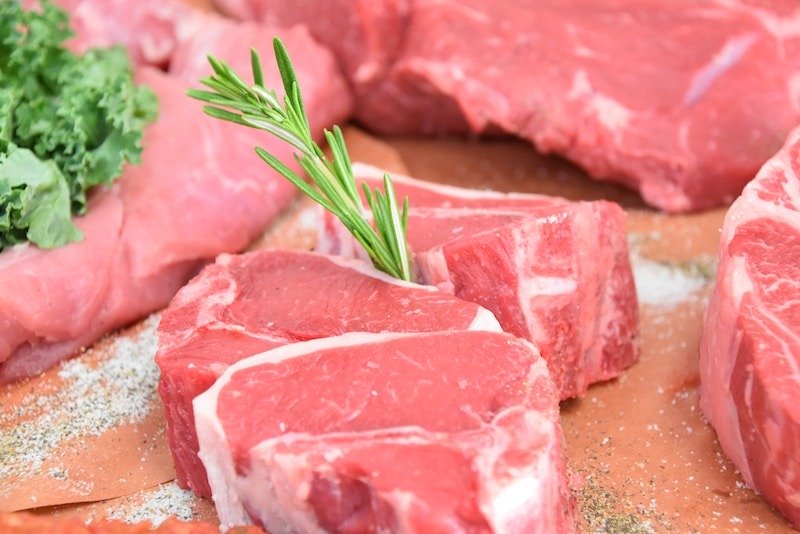
Red meat, including beef, lamb, and pork, can be an excellent source of protein, vitamins, and essential minerals.
However, a diet high in red meat has been linked to an increased risk of colorectal and pancreatic cancers.
When red meat is digested, it releases a compound called heme iron, which can damage the lining of the bowel.
Furthermore, cooking red meat at high temperatures, especially when grilling or barbecuing, can lead to the formation of potentially harmful compounds, including polycyclic aromatic hydrocarbons (PAHs) and heterocyclic amines (HCAs).
These compounds can damage DNA, raising the risk of cancer.
It’s worth noting that the method of preparation plays a role in the risk. For instance, stewing or boiling meat is less likely to produce harmful compounds than grilling.
Thus, while it’s not necessary to eliminate red meat from the diet, it’s prudent to consume it in moderation and consider healthier cooking methods.
4. Alcohol

Alcohol, when consumed in moderation, can be part of social rituals and relaxation.
However, excessive and regular alcohol consumption is a known risk factor for various cancers, including those of the mouth, esophagus, liver, breast, and colon.
When alcohol is metabolized in the body, it is converted into acetaldehyde, a toxic chemical that can damage DNA and proteins.
Furthermore, alcohol can increase estrogen levels in the bloodstream, which may elevate the risk of breast cancer.
It also can hinder the body’s ability to absorb vital nutrients, potentially leading to deficiencies that can contribute to the risk of cancer.
It’s important to approach alcohol with a sense of balance. If one chooses to drink, it should be in moderation.
This means up to one drink a day for women and up to two drinks a day for men, as recommended by many health organizations. But it’s always recommended that you stop drinking alcohol altogether.
5. Salt-Preserved Foods
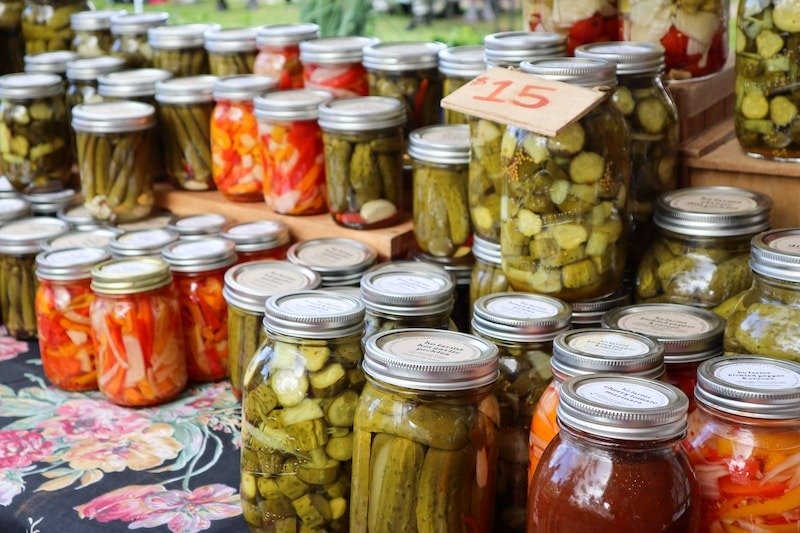
Salt preservation has been a method of keeping foods fresh for centuries.
However, foods preserved in this manner, such as pickled vegetables, salted fish, and cured meats, have been associated with an increased risk of stomach and nasopharyngeal cancers.
High salt content can damage the lining of the stomach, leading to inflammation and increasing the risk of cancer.
Moreover, these foods often contain other preservatives and chemicals that may contribute to their potential carcinogenic effects.
In some instances, the combination of salt with these additives can create a more harmful environment in the digestive system.
To mitigate these risks, it’s advisable to limit the intake of salt-preserved foods and incorporate fresh alternatives into the diet.
Consuming a variety of fruits, vegetables, and lean proteins can provide essential nutrients and reduce overall cancer risk.
6. Microwave Popcorn

Microwave popcorn is a popular and convenient snack. However, the bags in which the popcorn is microwaved often contain perfluorooctanoic acid (PFOA), a chemical used to line the bags and prevent sticking.
When heated, this chemical can leach into the popcorn. Animal studies have linked PFOA exposure to kidney, bladder, liver, and testicular cancers.
Moreover, some microwave popcorn brands use artificial butter flavorings that contain diacetyl, a compound associated with lung damage when inhaled in significant amounts, such as in manufacturing settings.
It’s not about avoiding popcorn altogether but being cautious about its source.
Air-popped popcorn or stovetop popcorn can be healthier alternatives, allowing you to enjoy the snack without the added risk of harmful chemicals.
7. Canned Foods

Many canned foods are convenient staples in pantries worldwide. However, a significant concern is the bisphenol-A (BPA) used in the lining of many canned goods.
BPA is an endocrine disruptor that can interfere with the hormonal system, leading to increased risks of breast and prostate cancers with prolonged exposure.
Besides, the process of canning can lead to the degradation of certain nutrients, making the food less beneficial than its fresh or frozen counterparts.
It’s also common for canned foods to have high sodium content, which, as mentioned earlier, can be a risk factor for certain cancers.
To minimize risks, consumers can look for BPA-free cans or opt for fresh or frozen alternatives.
Moreover, rinsing canned vegetables and beans can reduce sodium content, making them a healthier option.
8. Grilled Meats

As mentioned under the red meat section, grilling meats at high temperatures can produce harmful compounds.
PAHs form when the fat from the meat drips onto hot coals or stones, producing smoke that then adheres to the meat’s surface.
HCAs, on the other hand, form directly on the meat when it’s cooked at high temperatures.
These compounds are a concern because they have been found to mutate DNA, which can be a step in the cancer development process.
Especially at risk are meats that are charred or overcooked, as they contain higher levels of these compounds.
To reduce exposure to these compounds, consider marinating meats before grilling, as certain marinades can decrease HCA formation.
Moreover, avoiding direct exposure of meat to open flames and regularly turning the meat can reduce charring and the formation of harmful compounds.
9. Farmed Fish
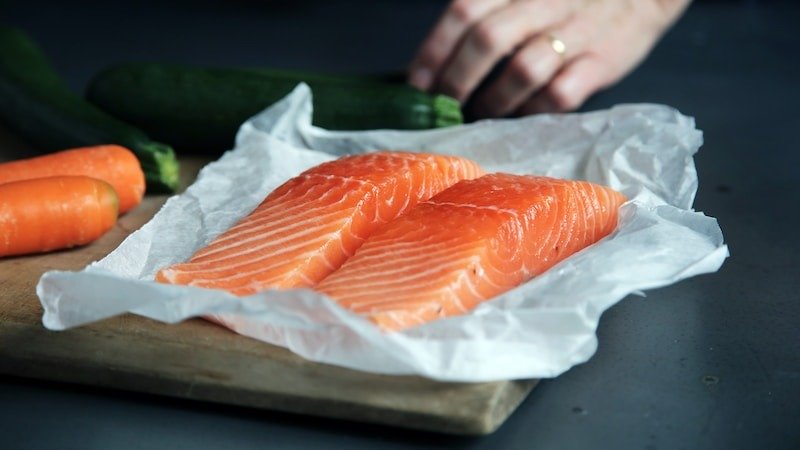
While fish can be a valuable source of omega-3 fatty acids and other essential nutrients, the environment in which they are raised can play a significant role in their health benefits or risks.
Farmed fish often are raised in crowded conditions, leading to increased disease risk and the subsequent need for antibiotics and pesticides.
Additionally, farmed fish might contain higher levels of polychlorinated biphenyls (PCBs), industrial chemicals that have been linked to certain cancers.
The diet given to farmed fish can also influence their nutritional profile, often leading to a higher omega-6 to omega-3 ratio, which might not be as beneficial as wild-caught counterparts.
Opting for wild-caught fish or researching farms that use sustainable and healthy farming practices can be a way to enjoy the benefits of fish without the potential risks associated with some farming practices.
10. Artificial Sweeteners

Artificial sweeteners, such as aspartame, saccharin, and sucralose, are commonly used as sugar substitutes, especially in diet sodas and sugar-free products.
While these sweeteners are approved by health organizations for consumption, there have been concerns and debates about their long-term safety.
Early studies on rats found a potential link between saccharin and bladder cancer, prompting caution and further research.
However, subsequent studies on humans have shown inconclusive evidence.
Aspartame, another popular sweetener, has been under scrutiny for possibly increasing the risk of brain tumors, though scientific consensus on this claim is still lacking.
The key is moderation. If choosing to consume products with artificial sweeteners, do so sparingly.
And always remember that natural sources of sweetness, such as fruits, are a healthier and more nutritious option.
11. Trans Fats

Trans fats, or trans fatty acids, are primarily found in processed foods, including certain baked goods, snacks, and fried foods.
They are created by adding hydrogen to vegetable oil, turning it into a solid. This process increases the shelf life of foods and can improve taste and texture.
However, trans fats have been linked to an increased risk of heart disease, obesity, and inflammation.
While direct links to cancer are still being researched, the indirect effects, especially through obesity and inflammation, can increase cancer risks.
Many countries and regions have taken steps to reduce or ban the use of trans fats in food production.
Nonetheless, it’s crucial to check food labels and avoid products with “partially hydrogenated oils” listed in their ingredients.
12. Genetically Modified Organisms (GMOs)
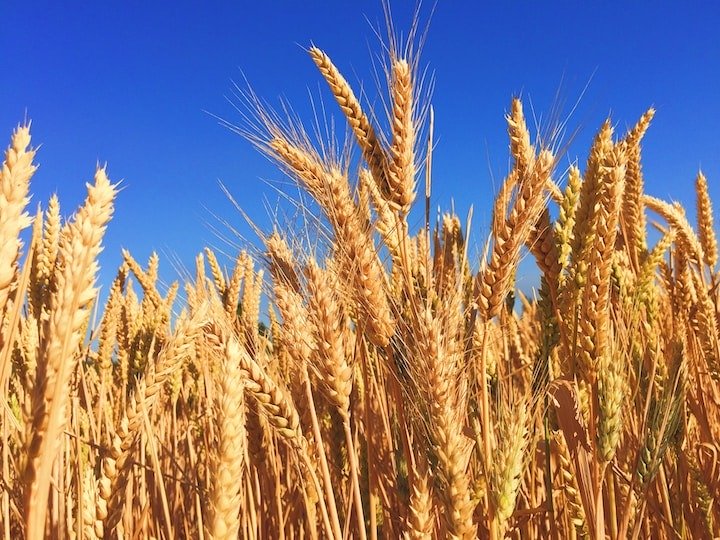
Genetically modified organisms (GMOs) are plants, animals, or microorganisms whose genetic material has been altered in ways that do not occur naturally.
The majority of GMOs are engineered for increased resistance to pests or to produce larger yields.
While GMOs can have agricultural benefits, there are concerns about their long-term effects on health.
Some animal studies suggest that GMOs can affect organ health, metabolism, and immunity.
The potential link between GMOs and cancer is still being researched, and findings are inconclusive.
To avoid GMOs, one can opt for organic foods or foods certified as non-GMO. Being informed and making conscious choices can help navigate the complexities surrounding GMOs.
13. Acrylamide
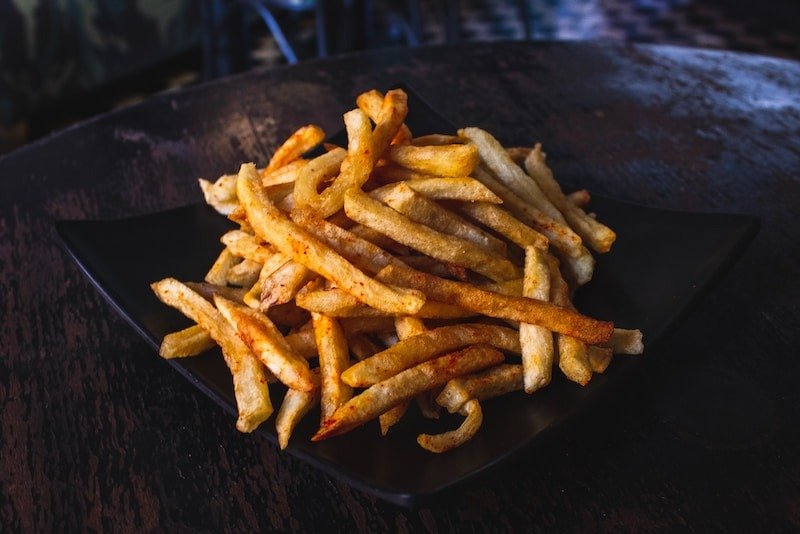
Acrylamide is a chemical compound that can form in certain foods, especially starchy foods, when they are cooked at high temperatures, such as frying, baking, or roasting.
Examples include potato chips, french fries, and certain baked goods. The compound forms from sugars and amino acids naturally present in these foods.
Studies have shown that acrylamide can increase cancer risk in animals.
While the exact risk to humans is still being determined, it’s advisable to reduce exposure to this compound.
Simple steps like toasting bread to a light brown instead of dark, or avoiding over-frying foods, can help reduce acrylamide formation.
14. Non-Organic Fruits and Vegetables
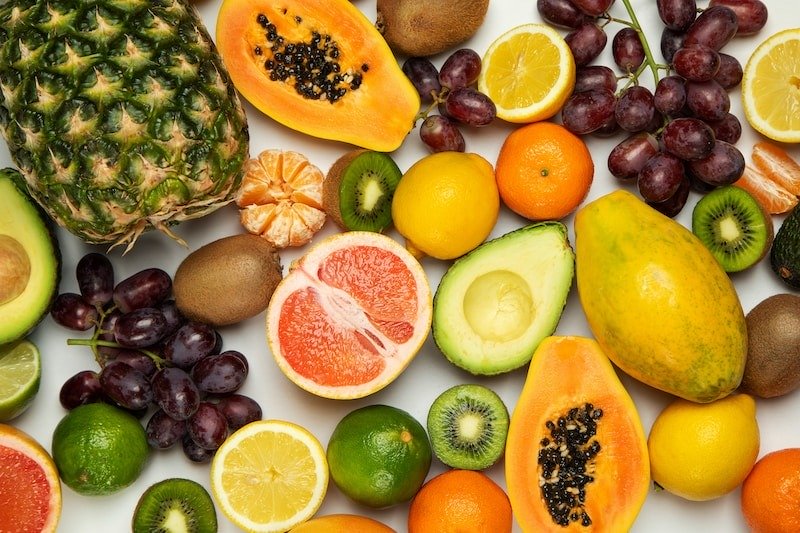
Fruits and vegetables are fundamental components of a healthy diet. We’ve already mentioned that in a couple of foods before this that for healthier option you should eat fruits (instead of sugary stuff, etc).
However, the use of pesticides in non-organic farming has raised concerns.
Residue from these chemicals can remain on, or even in, the food we eat.
Some pesticides have been classified as potential carcinogens, and chronic exposure might increase the risk of certain cancers.
Washing fruits and vegetables can remove some of the residues, but not all. So try and scrub them and rinse them good before you consume them.
With that being said, there isn’t any conclusive evidence that eating organic food reduces the risk of cancer.
It means that opting for organic produce, especially for items known to have higher pesticide residues, can be a safer choice.
15. Hydrogenated Oils

Hydrogenated oils are vegetable oils that have been processed to become solid or semi-solid at room temperature.
This process increases the oil’s shelf life and stabilizes its flavor. These oils are commonly found in margarines, baked goods, and snack foods.
The hydrogenation process not only creates trans fats but also alters the structure of the oil in ways that can negatively affect health.
Increased consumption of hydrogenated oils has been linked to inflammation, heart disease, and higher LDL cholesterol levels.
While the direct link to cancer is not well-established, the indirect pathways through inflammation and other health conditions can contribute to increased cancer risk.
When shopping, it’s essential to read food labels carefully and opt for products that do not contain hydrogenated or partially hydrogenated oils.
Natural oils, like olive or avocado oil, are healthier alternatives for cooking and baking.
Top Cancer Causing Foods: Final Words
In today’s world, with the constant evolution of food products and manufacturing methods, it’s crucial to stay informed about what we consume.
This article shed light on 15 “cancer foods” or food-related concerns that might be associated with increased cancer risks.
From the common culprits like sugary drinks and red meat to the lesser-known dangers of microwave popcorn and GMOs, it’s evident that our diet plays a significant role in our overall health.
It’s essential to approach these foods with a sense of balance and awareness.
While not every item on this list needs to be entirely eliminated from our diets, reducing consumption or opting for healthier alternatives can make a significant difference.
Remember, it’s not just about avoiding potential risks but also about embracing a diet rich in whole foods, fresh produce, and nutrient-dense options.
Being informed and making conscious dietary choices is a proactive step toward better health and potentially reducing the risk of cancer.
As always, consult with healthcare professionals when making significant changes to your diet or if you have concerns about specific food items.
Resources and Studies
- Healthline: Highlights processed meats and their potential connection to cancer risk1.
- NCBI: Discusses the evidence linking diet and nutrition to cancer risk, emphasizing the roles of obesity and alcohol2.
- Nature Communications: An umbrella review evaluating the association between food/nutrient intake and the risk of developing or dying from 11 primary cancers. Notably, alcohol consumption is associated with increased risk for several cancers, while consumption of dairy products, milk, calcium, whole grains, and coffee are associated with decreased risk for certain cancers3.
- Cancer.Net: Explores connections between various foods/nutrients and cancer risk, highlighting the protective roles of plant-based foods, dietary fiber, and certain vitamins/minerals, as well as the increased risk associated with red and processed meats and alcohol4.
- American Institute for Cancer Research (AICR): Emphasizes that a diet rich in vegetables, fruits, whole grains, and beans can help lower cancer risk. It also advises limiting the consumption of alcohol, processed meats, red meats, and sugar-sweetened drinks to reduce cancer risk5.
- Mayo Clinic: Recommends avoiding alcohol due to its classification as a carcinogen6.
These sources provide a comprehensive understanding of how different foods may either increase or decrease the risk of cancer. Please note that no single food can protect against or cause cancer on its own; rather, overall dietary patterns, combined with other lifestyle factors, play a significant role in determining cancer risk





